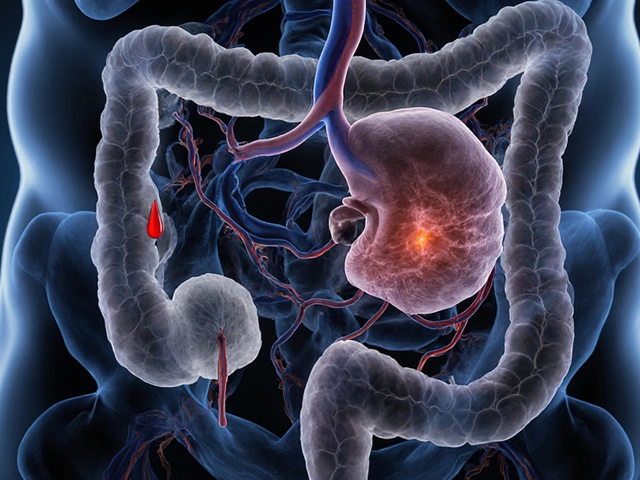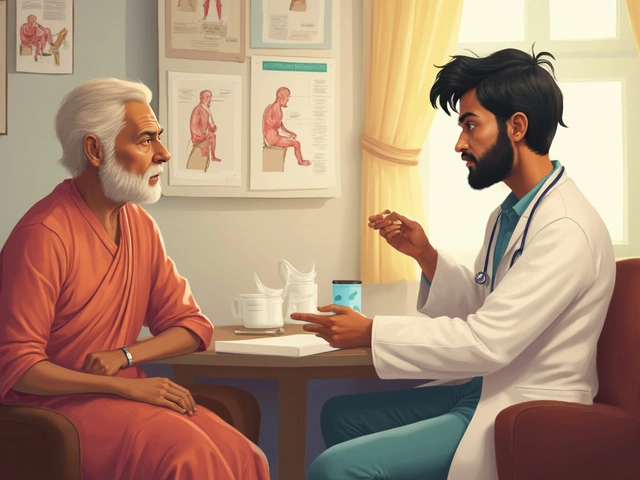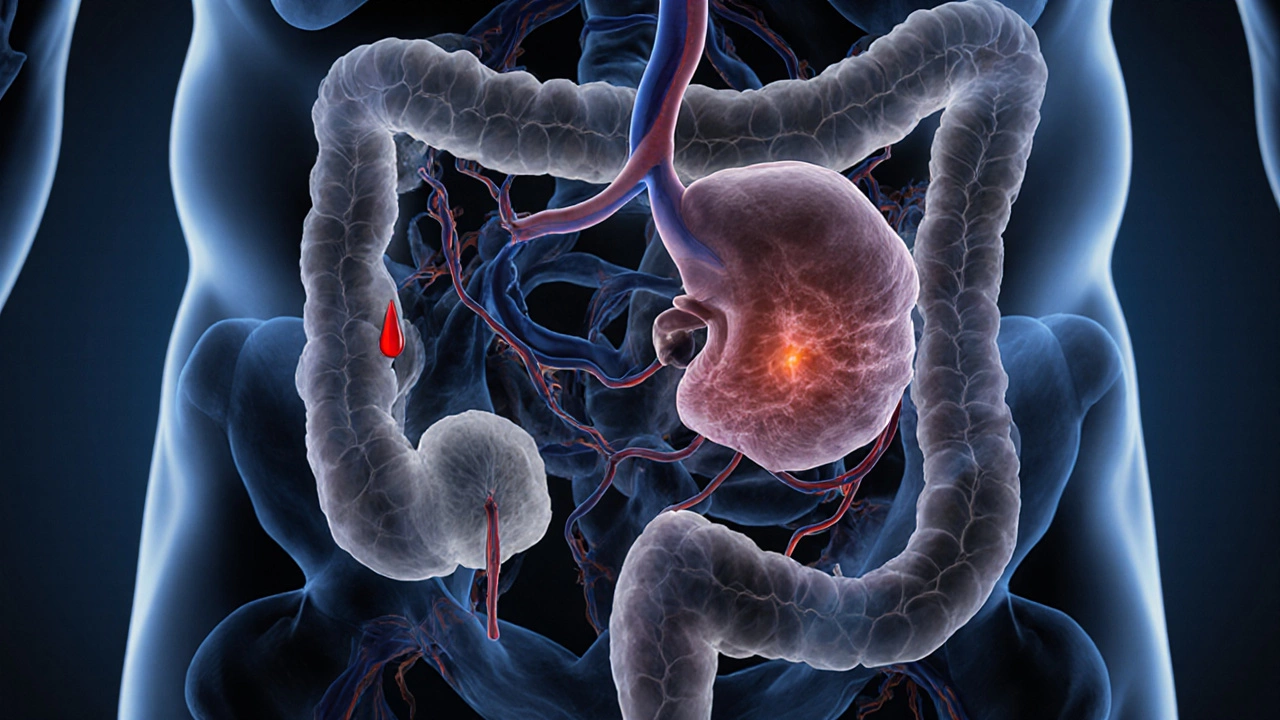
What Is the Hardest Cancer to Cure? Real Facts About Survival, Treatment, and Why Some Cancers Resist Healing
Pancreatic Cancer Survival Calculator
This tool provides estimated survival rates based on current medical data. Pancreatic cancer is challenging to treat, with the lowest survival rates among major cancers. Remember: these are statistical averages and don't represent individual outcomes.
Pancreatic Cancer Statistics
12%
Five-year survival rate
3%
Survival rate with metastatic cancer
How This Calculator Works
This tool estimates survival rates based on:
- Cancer stage (localized, regional, or metastatic)
- Patient age
- Treatment approach
Your Information
Estimated Survival Rate
Important Note: Survival rates are statistical estimates based on historical data. Individual outcomes vary significantly based on many factors including overall health, specific genetic markers, and response to treatment. The five-year survival rate means the percentage of people who live at least five years after diagnosis.
When someone hears the word cancer, their mind often jumps to fear. But not all cancers are the same. Some respond well to treatment. Others fight back at every step. Among all types, one stands out as the most difficult to cure: pancreatic cancer.
It’s not the most common. It’s not the most talked about. But it’s the deadliest. By the time most people are diagnosed, it’s already spread. Surgery is often impossible. Chemotherapy barely slows it down. And survival rates haven’t improved much in decades.
Why Pancreatic Cancer Is So Hard to Treat
Pancreatic cancer starts in the pancreas - an organ behind the stomach that helps digest food and control blood sugar. Sounds harmless, right? But here’s the problem: it grows silently.
There are no early symptoms. No routine screening test like a mammogram or colonoscopy. By the time someone feels pain, loses weight, or turns yellow (a sign of jaundice), the tumor is often the size of a golf ball and has already spread to nearby blood vessels, the liver, or the lungs.
Doctors call this a "silent killer" for a reason. About 80% of pancreatic cancers are diagnosed at a late stage. That means surgery - the only real chance for cure - is no longer an option.
Even when surgery is possible, the cancer comes back in over 70% of cases within two years. The pancreas is surrounded by major arteries and veins. Tumors wrap around them like ivy. Removing the cancer means removing parts of those vessels. That’s risky, complex, and not always doable.
Survival Rates That Tell the Real Story
The five-year survival rate for pancreatic cancer is around 12%. That means only 1 in 8 people live five years after diagnosis. Compare that to breast cancer (90%), prostate cancer (97%), or even lung cancer (23%).
For those diagnosed when the cancer has already spread, survival drops to under 3%. That’s lower than most other advanced cancers. Even with the latest treatments - including immunotherapy, targeted drugs, and new chemotherapy combinations - the gains are small. Patients might live a few extra months, not years.
Why? Because pancreatic tumors are surrounded by dense tissue called stroma. It acts like a shield. It blocks drugs from reaching the cancer cells. It also tricks the immune system into ignoring the tumor. That’s why immunotherapy, which works wonders for melanoma or lung cancer, barely touches pancreatic cancer.
Other Tough Cancers - And Why They’re Still Not the Hardest
People often ask: "What about glioblastoma? Or ovarian cancer? Or liver cancer?"
Glioblastoma - a brain tumor - is aggressive and hard to remove completely because it spreads into healthy brain tissue. But it’s rare. Only about 12,000 new cases a year in the U.S. Pancreatic cancer kills over 50,000 Americans annually.
Ovarian cancer is often found late too. But it usually responds well to chemo at first. Many patients live for years with treatment. Liver cancer is tough, but if caught early, surgery or a transplant can work. Pancreatic cancer? Even early-stage tumors have a high chance of returning.
Small cell lung cancer grows fast and spreads quickly. But it responds well to chemo and radiation - at first. Then it comes back, resistant and deadly. Still, survival rates for small cell lung cancer are slightly better than pancreatic cancer’s.
None of these cancers are easy. But pancreatic cancer is the one that consistently wins. It doesn’t just resist treatment. It ignores it.
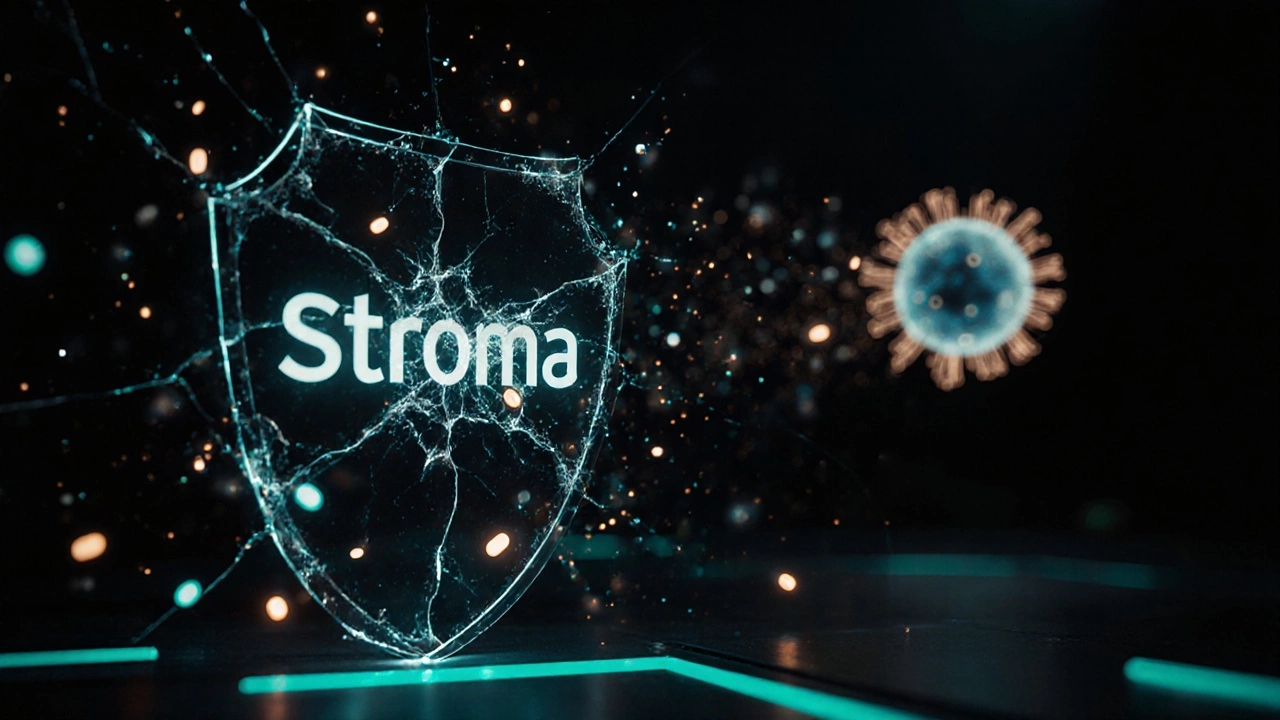
Why Progress Has Been So Slow
For years, pancreatic cancer didn’t get the funding or research attention it needed. It wasn’t "sexy" like breast or skin cancer. Fewer survivors to advocate. Fewer public campaigns. Less media coverage.
That’s changing. But slowly. Researchers now know the tumor’s stroma is the main villain. They’re testing drugs that break it down. One experimental drug, PEGPH20, showed promise in early trials - it dissolved part of the stroma and let chemo reach the tumor. But later trials failed to show big survival gains.
Another approach? Personalized medicine. Scientists are sequencing tumors to find rare mutations. About 10% of pancreatic cancers have BRCA gene mutations - the same ones linked to breast cancer. These patients sometimes respond better to certain chemo drugs or PARP inhibitors.
There’s also work on vaccines. Not to prevent cancer, but to train the immune system to attack it after surgery. Early trials show some patients lived longer. But it’s still experimental. No vaccine is approved yet.
What Can Be Done Now?
If you or someone you know has been diagnosed with pancreatic cancer, here’s what matters:
- Get tested for genetic mutations. BRCA, PALB2, Lynch syndrome - knowing this can change your treatment plan.
- See a specialist at a high-volume cancer center. Surgeons who do 20+ pancreatic operations a year have better outcomes than those who do one or two.
- Ask about clinical trials. Many new drugs are only available through trials. Don’t assume you’re out of options.
- Focus on nutrition and quality of life. Pancreatic cancer affects digestion. A dietitian who specializes in cancer can help you keep weight and strength.
There’s no magic bullet. But knowing the facts helps you make smarter choices. And sometimes, those choices extend life - and improve it.
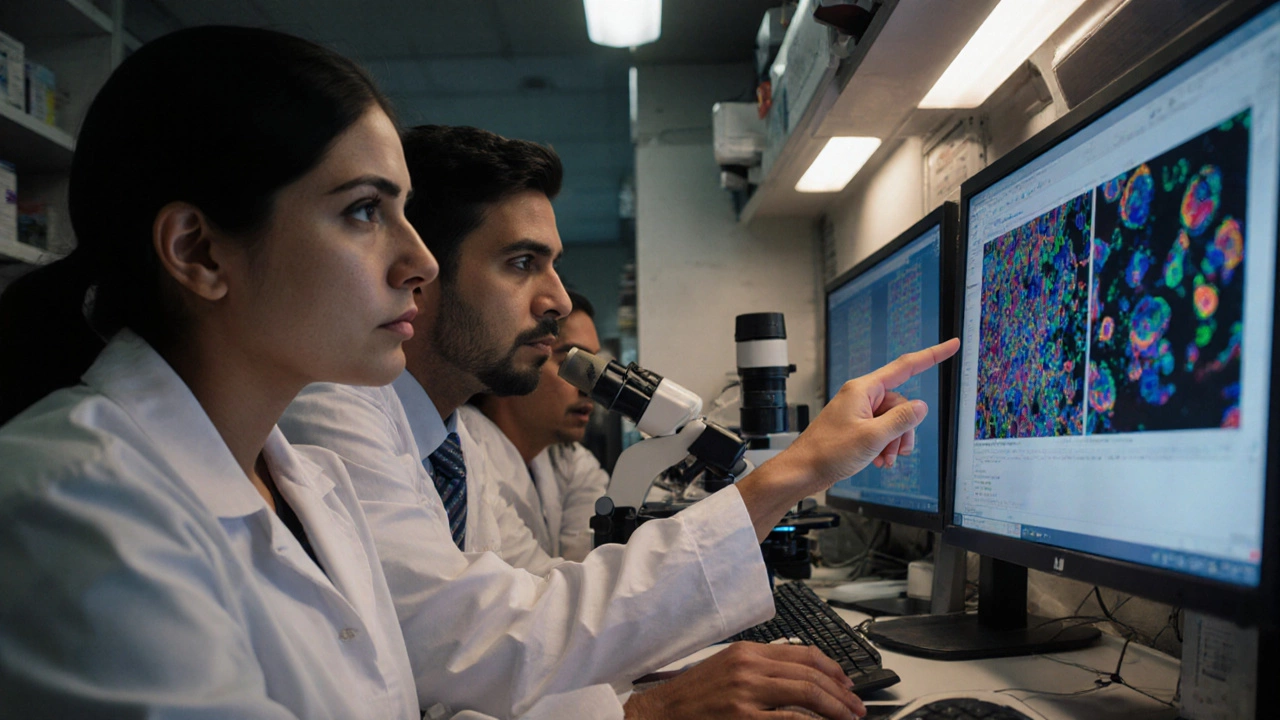
The Future: Hope in the Pipeline
Scientists are exploring new ways to crack pancreatic cancer’s defenses.
One idea: turn the stroma from a shield into a trap. Some drugs are being tested to make the tumor environment so hostile that cancer cells can’t survive - even if the drugs don’t reach them directly.
Another: liquid biopsies. Instead of cutting into the body, doctors are testing blood for tumor DNA. This could catch recurrence earlier - before it shows up on scans.
And then there’s AI. Machine learning models are being trained on thousands of scans and genetic profiles to predict which treatments will work for which patients. It’s not science fiction. It’s happening in labs in London, Boston, and Tokyo right now.
Progress is slow. But it’s happening. The five-year survival rate was just 6% in 2010. It’s 12% now. That’s not enough. But it’s a sign that we’re learning.
Final Reality Check
Pancreatic cancer is the hardest cancer to cure - not because it’s the most aggressive, but because it hides, resists, and outsmarts us.
There’s no easy answer. No quick fix. But there is progress. And for the first time in decades, researchers are working together - across countries, disciplines, and institutions - with a single goal: beat this disease.
If you’re facing this diagnosis, know this: you’re not alone. And science hasn’t given up on you.
Is pancreatic cancer the deadliest cancer?
Yes, in terms of survival rate and treatment resistance, pancreatic cancer is the deadliest common cancer. While other cancers like glioblastoma or liver cancer are also aggressive, pancreatic cancer has the lowest five-year survival rate among major cancers - around 12%. It kills more people than it cures, and that gap hasn’t narrowed much in 30 years.
Can pancreatic cancer be cured if caught early?
Possibly - but early detection is extremely rare. Only about 10% to 15% of pancreatic cancers are found before they spread. If caught at this stage and the tumor can be fully removed with surgery, some patients live five years or longer. But even then, recurrence is common. There’s no guaranteed cure, even with early diagnosis.
Why doesn’t chemotherapy work well for pancreatic cancer?
The tumor is wrapped in a thick layer of scar-like tissue called stroma. This barrier blocks most chemotherapy drugs from reaching the cancer cells. Also, pancreatic cancer cells are genetically unstable and quickly develop resistance. Even drugs that work at first often stop working within months.
Are there any new treatments on the horizon?
Yes. Researchers are testing drugs that break down the stroma, personalized vaccines, and liquid biopsies to detect recurrence early. Some patients with specific gene mutations (like BRCA) respond better to targeted therapies like PARP inhibitors. Clinical trials are the best path to access these new options right now.
Can lifestyle changes prevent pancreatic cancer?
Not completely, but they can lower risk. Smoking is the biggest avoidable cause - it doubles your risk. Obesity, chronic pancreatitis, and long-term diabetes also increase risk. Eating less processed meat, staying active, and avoiding heavy alcohol use may help. But most cases happen in people with no clear risk factors.
Why isn’t there a screening test for pancreatic cancer?
Because it’s rare and hard to detect early. Screening everyone would cost billions and find very few cases. Right now, doctors only screen people with strong family histories or known genetic syndromes (like BRCA or Lynch syndrome). For the general public, there’s no reliable, affordable test - yet.

Arnav Singh
I am a health expert with a focus on medicine-related topics in India. My work involves researching and writing articles that aim to inform and educate readers about health and wellness practices. I enjoy exploring the intersections of traditional and modern medicine and how they impact healthcare in the Indian context. Writing for various health magazines and platforms allows me to share my insights with a wider audience.
About
Medical Resource Center India is a comprehensive online platform dedicated to providing reliable health information and medical resources in India. Explore a wide range of articles, tips, and advice on medicine, healthcare services, and wellness. Stay informed about the latest developments in Indian medicine and access valuable insights into maintaining a healthy lifestyle. Discover expert guidance and health solutions tailored for every Indian citizen. Your go-to destination for authoritative medical knowledge in India.
